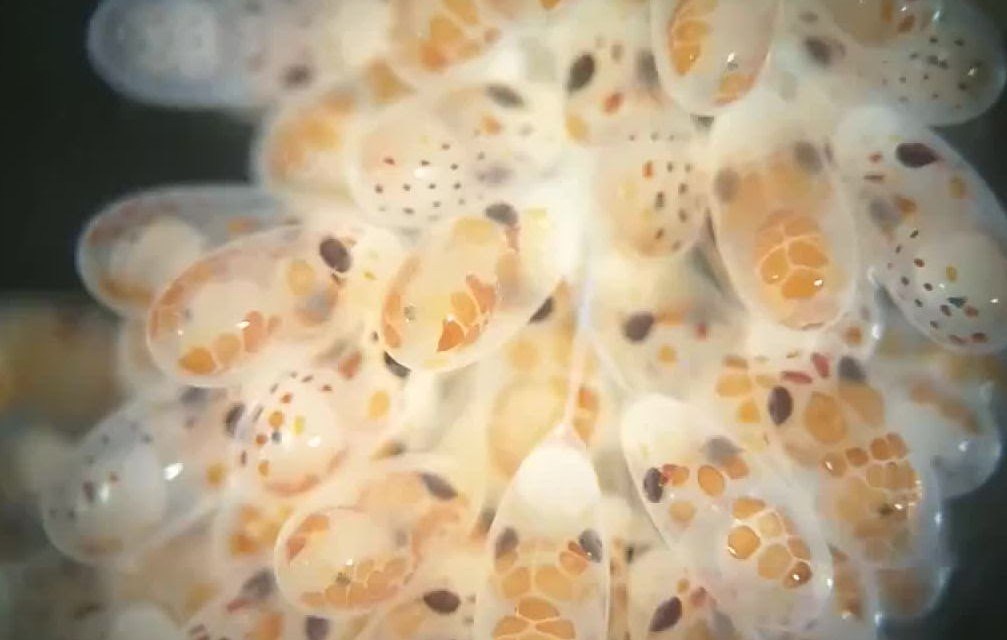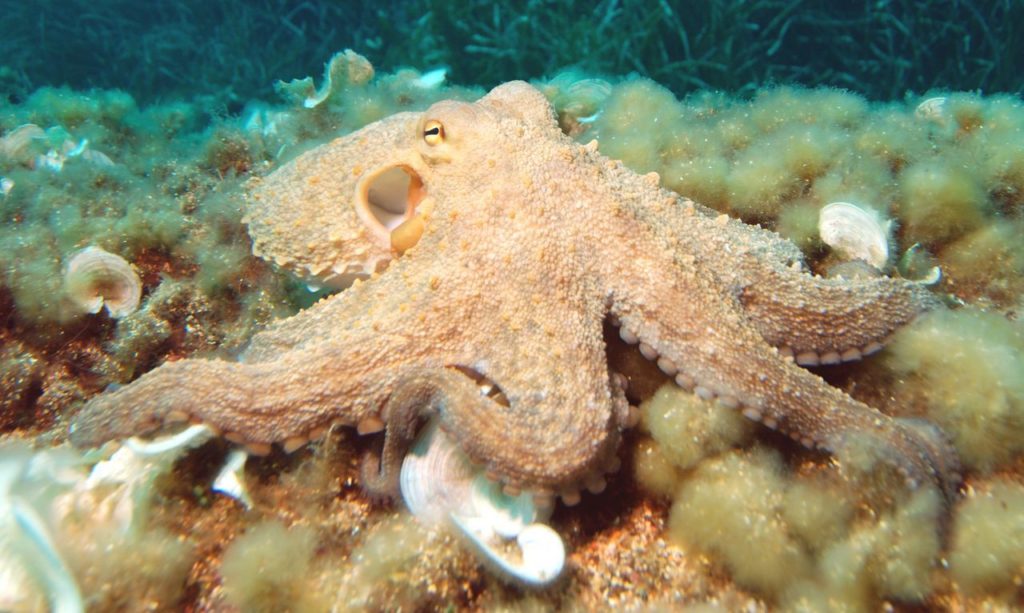Despite a gap of 600 million years of evolution, the brain of a human develops in a very similar way to that of an octopus, according to researchers from the university of Leuven.
It has long been recognised that the octopus is a particularly intelligent invertebrate, able to use tools, to play and even to plan for the future. Some characteristics have previously been thought to be restricted to vertebrates such as dolphins and primates, including humans.
The researchers from KULeuven set about examining the development of the octopus brain to see if that could give any clues to this apparent anomaly.
The key is this: in the human brain, cells are not manufactured in the place where they will end up. Instead they develop from brain stem cells which are distributed throughout the brain, where they wait until the are fully grown, at which point they migrate to whatever region of the brain requires them.
That is also the process in the brains of other vertebrates, and now the team led by Eve Seuntjens, professor of animal physiology and neurology, has discovered that the same is true for the octopus.
"Octopuses are invertebrates that have undergone a very different evolution since the origin of life on Earth," said Prof Seuntjens. "If the brains of two animal species, each of which have undergone a completely different evolution, develop in the same way, then you can say that that way of development probably determines the extent to which a species is intelligent."

A cluster of octopus eggs containing embryos. © KU Leuven - Astrid Deryckere
“In the lab, we built an ideal environment in which octopus eggs can develop,” explained postdoctoral researcher Astrid Deryckere.
“Because the eggs are transparent, we were able to closely follow each stage of development. To our great surprise, brain cells in octopuses show the same migratory behaviour as human brain cells. This proves that migration of brain cells is fundamental to the formation of complex brains.”
The study, published now in the journal eLife, was funded by the Stazione Zoologica A Dohrn (Naples), the Fund for Scientific Research of the Flemish government (FWO) and KULeuven.

